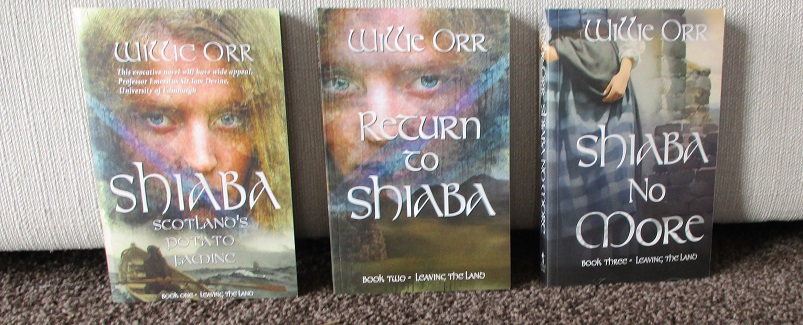
The Shiaba trilogy - my inspiration
romhc Saturday, 17 May 2025
The 'Shiaba' trilogy has had an unusually long gestation, starting in 1967. Shortly after Shiaba and Scoor was sold to the Forestry Commission, the farm was run by the Department of Agriculture with Donnie Cameron as shepherd. As a tenant of Saorphin, I was employed to help Donnie with the gatherings. Driving the sheep through the ruins of Shiaba, I was struck by the air of melancholy that pervaded the settlement - as if the people who had been evicted left their sorrow in the stones.
Ten years later, when I was working for Tom Devine in the Duke of Argyll's archive, I discovered bundles of letters from the Shiaba people who had settled in Canada. Along with these, was a petition to the Duke from those who remained. This was a time of great hardship (the time of the potato famine (1846)) and 22 families (more than 100 people) from Shiaba were about to be evicted. One of the petitioners, Neil MacDonald, almost 100 years old, included a personal appeal of his own against removal. It was a moving experience to hold his letter in my hand. Their story first appeared in the Scotsman newspaper in 1983 and in Tom Devine's book "The Great Highland Famine".
I felt that the story should reach an even wider audience and so staged a play with the Argyll Youth Theatre. We arranged a tour, playing in Tobermory, Appin, Oban and Bunessan. While performing in Bunessan, we took some of the youngsters out to Shiaba and they were so moved by their encounter with the actual ruins that they will remember it for many years. It was their reaction that inspired the first novel.
Since its publication, many threads have been drawn together. Several people have come foward to say that their ancestors were evicted from Shiaba and the 3x great grandson of the petitioner Neil MacDonald was my son's best man!
Willie Orr 17th May 2025

